|
2/17/2020 0 Comments Poetry by Maeve McKenna Richard P J Lambert CC Cat Mirror They clung to walls in places we called home, plotted revenge, like the claws of that feral we tamed with scraps of food and a newspaper bed. The shards we could never piece back together, bodies unfolding inside coats hanging in halls, the fickle latch shadowed in fatherless homecomings as the evening sun settled over other houses. The slap of morning water smeared itself across our attempted childhood and each sunrise her smile froze; compacted glass face glistening in a handbag, beside her lipstick, in the follicles of a hairbrush. Once, she invested in a life size one. We crawled about, contorted, watching our bodies be other animals; all rickety bone, matted hair and little else, while she flounced under the reflective plume of a French cigarette, cradling the cat like a new fur coat, in the pose of a dinner-dance goddess. Deleted We better not talk of it anymore; this chalky blue tab gagging at the back of my throat. Now I’m barely breathing. Your social vice-grip on my middleclass mediocrity is insidious pain and my heart has less than seconds to flat-line into one of the withered, but lauded, apples from your orchard, photographs of which you flaunt beside anaemic diatribes on vaping and consumerist unbelievers. Your callous blocking swipe I will bear, and worse, know how little you care, as if we might never meet, be just cartoon eyes, glancing past the narrow lanes we both travel, little room for both of us here, and in steering our guzzling machines (your spiel),wing mirrors touching, close as we’ll ever be, we must stop, have the grand day moment and I won’t have the second account to follow with so, how are you, because you have silenced me. A farmer you wave to is cutting the hedgerows too early. A Yellowhammer, another cause for your perfect, protest life, is happily tweeting outside our inch-open windows as you scurry by and home to post horrified one-click opinions on artistic bursaries and the catastrophic level of plastic in the Ganges River and my fingers are tapping the steering wheel, urging the bone of my thumb into another deleted comment. Bullet Proof You strut about packing metal, lipstick smeared across your collar, like the blood of that kitten you hunted and double checked for a flat-line heart; eyes like marbles glistening in fluid, motionless in disbelief at your fatal handy work. Later, you can’t remember the reason you became it, just that you had to be like them, loaded in all the right photographs, even as you slept at a certain angle so tears wouldn’t retreat back down your throat or congeal in your stubble. But they have proof; a square bullet, its trajectory your decimated heart and a thousand likes on your story as evidence you don’t give a fuck.  Maeve McKenna lives in Sligo, Ireland. Her poetry was shortlisted, highly commended and longlisted in 2018/19 in several international poetry competitions. She has been published in The Cormorant and Sonder Magazine and widely online. Maeve is working towards her first collection of poetry.
0 Comments
2/17/2020 0 Comments Poetry by Jasmine Ledesma Richard P J Lambert CC Winter, 2009 It’s really unbelievable. Ten years of working this shift and now I am an involuntary cheerleader. Stuck in a pleated skirt, the ripe fabric swiping at my legs. My hair foams at my shoulders. My mother and I are in the crook of Dallas. The air is salted with hauntings. We are in a waiting room that smells of dust. A choked up water fountain and a Dr. Phil rerun make music nobody could even twitch to. A real doctor appears in the doorway with an emergency sporting a buzz cut. My sister. We walk down a hallway filled with signs. Ward is a pretty word. We sit down on a plastic couch. My sister’s head looks like a peach I’d steal. There are fuzzy bandages around both of her wrists. She is twenty years old. You look so cute, she says and says. I never ask what hurts. It is enough to know that it does. Ode To Vomit My mother is afraid of fat and break-ins. She thinks they are the same thing. I am ten and scared of fire and vampires in that order. My reflection greases along car windows like smears of blood. I steal my brother’s mirror and spend decades looking at the girl in there. She looks like a cloud, moody and formed. The first time I make myself throw up my room is grey with afternoon. My head full of unfinished dopamine, I chase my first impulse and crawl into my throat. Everything comes up like surprise. 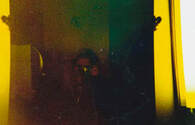 Jasmine Ledesma can be found eating diamonds in New York. Her work has been published over twenty times in places such as Vagabond City and Gravitas. 2/17/2020 1 Comment Up Here by Bill ArnottDown Here I’m just down here and he’s up here my dad would say placing his hand like so and then again just so Convoluted pecking order handed down and kept alive by those up here For years it didn’t quite seem right but dad at times held on to things held on to by his mom I realize just why it never quite seemed right I’m almost certain now that he’s up here the rest of us down here 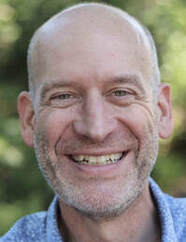 Vancouver author, poet, songwriter Bill Arnott is the author of Gone Viking: A Travel Saga, and Allan’s Wishes. His work is published in Canada, the US, UK, Europe and Asia with numerous features in literary journals, magazines and anthologies. Bill has a 2019 poetry prize and honorable mention from Pandora’s Collective and is a finalist for the Whistler Independent Book Awards with Gone Viking: A Travel Saga. 2/17/2020 0 Comments Poetry by Marc Harshman Richard P J Lambert CC
FURTHER AND FURTHER Wearing his thrift shop cape, he stalks the alleys with his cane and the many fevers a man carries who’s lived too long in his own company. The single room above the convenient keeps shrinking, the acreages within his kingdom reduced to the size of the single window. A letter comes through the slot in his skull and he finds upon it his mother’s address and on the envelope a nickel stamp. How old is he? He could’ve ruled many kingdoms, made her proud. Zeppelin had pointed him out of Mordor so he’d memorized the roads through Middle Earth smoked a toke down in Mexico--no, it doesn’t go like that. Fuck. He tries the mirror, but that’s no better. He sees a pigeon perched on the bank steeple. He concentrates until he knows for sure it falls into flight and out of sight because he willed it to do so. He could live by his special powers he tells the hash cook the next morning waiting in line for toast and eggs and coffee. You just have to keep everything in focus. And try hard. Try harder, his mother had told him. He is, still is, trying, harder and harder, and falling, every day, further and further out of sight. ON THE WAY DOWN I land in a small elevator with hundreds of people pressing against me, waving unanswered letters, unpaid bills, shouting complaints, pleading for answers to e-mails . . . Everyone knows my name. Worse, I know theirs. They absorb all but the silence. Someone gives it a swift quick out the door. I see it glowing in the distance on a headland above a noisy sea. At every stop more voices: speech bubbles boiling over with debts and trespasses. A coffee can filled with stones is shaken relentlessly outside that moment childhood ended. Mother is screaming about the toothpaste being left open, Father is growling under the floor about the missing pliers. Ghosts with black tears keep begging for forgiveness. Babies tear words from the air and fling them against thin walls of skin under which my soul crawls toward the solace of wall flowers, cruel friends, brave enemies. Abased, and bruised, I scratch my nails into their faces as they shimmer inside the mirror’s still horizon. I wait for the dumb waiter to call my name, announce the last course. Harshman’s WOMAN IN RED ANORAK, won the Blue Lynx Poetry Prize, published by Lynx House Press. His fourteenth children’s book, FALLINGWATER [co-author Anna Smucker] was published by Roaring Brook/Macmillan in 2017. He is also the co-winner of the 2019 Allen Ginsberg Poetry Award. Poems have been anthologized by Kent State University, the University of Iowa, University of Georgia, and the University of Arizona. Appointed in 2012, he is the seventh poet laureate of West Virginia 2/17/2020 0 Comments Poetry by Charles Byrne Richard P J Lambert CC Free will I was looking out and over the long crowd on the High Street thinking of the submerged grief that river is carrying, and the hard bone of the shoulders of the woman in front of me ebulliently swinging her child from the line of her arm, the shaking they must be made to do at times when she is alone, the thought of lifting her arm to another the feeling of lifting all the arms that have come before. This is when trying to understand the world only brings harm to oneself, and more harm. When trying to suss out the free will is ungathering the haystack in search of the straw, and then, lain prone in a golden field, worn raw from crying, seeing that one has forgotten what she was looking for. This is why we must choose to ride that river at its mirrored surface. Mine Lying in the tunnel, black mountain wound where I cannot stand, staring upward to my sky of loam. Thinking of how I began at nine years old, when I could tuck in every nook, the first time I saw the mouth of the mine. Since, the coal has benighted my skin, settled the beds of my fingernails with bitumen, filled my mouth with its taste, and has never left me. Starting out, I had dreams every night of eternal incubation in the hole. And my muscles – how they burned precipitately, and, I feared, never-endingly. At home, mother would stupe my wounds, stroke my neck, straighten my back. But since, it’s the slate of my mind when I’ve been down in the hole, blank, benumbed; and when I’ve come up, stooped, the sun’s coalescent burn on me, I am aware of nothing but days having passed. But all for the faith of a distant descendant, a son of a son of a son, unknown, nonentitous boy, unseen, nonexistent progeny, who will extract the light of day, transpose it, press pencil to page. It is he who will create, forge something out of this dark hollow, his forever unseen birthright, his unknown history. My mother’s purse In the black sea bottom an eddy of crumbs, candies, pens and needles, and a pill or two. Bright red and blue, notched, the smooth gelatin of horse’s hooves – were they the pills that should have killed you in 1962? Year upon year, the cyanide to bite should they capture you? Having killed myself, having lost myself, drain cleaner I cannot tell which. being my final choice, something has run One time recently, its course through before the acid cocktail, my veins. I meant to look for some answer in nature -- In life, each suicide to give it one last shot, was a little death for me. after all what’s to lose – As when my son found me but no answer the time previous, presented itself. the time I had trembled downstairs to the basement Instead, I became lost and set the buzzsaw in our town’s preserve – to screaming about my arms, not far from the Japanese and quivered upstairs, formal garden, yet far enough blood running free and black to lose my orientation. in the colorless crepuscule, upstairs to the bathroom, And that was it. my crypt, the tub my casket, I couldn’t think pulling the curtain shut after me. of a thing to do. I say he found me. But So I edged down when I woke, thin-blooded, to where the stream spoons. his eyes had such gravity, I held my hand in the cold water, yet I was too fluid-empty watched it ripple beneath to make tears. the sunlight-inflected surface, and felt something After that, his mother left me, drain out of me and ipso facto he, and I am as a spring persona non grata — feeds a river for either her having lost me, or I feeds an ocean. 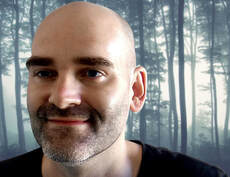 Charles Byrne is a teacher and poet in San Francisco, with publications in After Hours, Clarion, and Poetry Quarterly. 2/17/2020 7 Comments Poetry by Juan Pablo Mobili Richard P J Lambert CC
The Wish I dreamed my mother was alive and young again Buenos Aires in the ’50s sitting at the beauty parlor getting her hair done talking, of course It’s Saturday it’s early she’s drying her nails and she’s happy I remember nodding at her and that she smiled I remember I only wished the best for her They Thought They Were Angels Those were the years when the Flying Panini Brothers would soar onto the modest void of their small tent holding a rose’s stem between their teeth like a bear carries her cubs As imperfect as they were, they thought they were angels; on the ground they were fallible creatures, but in mid-air they felt holy, like hummingbirds God made with His own hands Those were the years when young women came back from the prom with their brand-new dresses ripped under their coats after some holy boy dropped them off at their homes You could see them driving away, drunk and laughing down the street, and disappear into a darkness that would last forever in the young girls’ hearts Those were the years where all of God’s voices led us to silence to admire men because they seemed to glide under the circus tent, unimpeached by conscience or society under their tiny capes and now they are beginning to fall one at a time like the fruit of a misshapen tree that finally dies like impostors with wings who thought they were angels. Juan Pablo Mobili was born in Buenos Aires, Argentina, and is an adopted son of the City and State of New York. The son of a teacher and a poet, he came of age in his native country during a tragic period of its history, when many thousands of young men and women, who came to be known as the “disappeared,” were unconstitutionally detained, tortured, and murdered. His poems bear the memory of those times but also embrace the cultural tradition and language of the United States, his home for over 40 years, although he still believes he writes “Spanish in English.” Alongside with being a poet, Juan Pablo has been a music critic, a professional translator and interpreter in several languages, and, for a number of years, a Leadership Development consultant and coach to organizations around the world. His writing has appeared, in English and Spanish, in Mutantia and Expreso Imaginario (Argentina); B2 (Germany); and River River Journal, The Poetry Distillery, and First Literary Review-East (United States). In addition to that, he released a chapbook of poems in collaboration with Madalasa Mobili, published by Seranam Press, called “Three Unknown Poets.” 2/17/2020 0 Comments queer me by Stephen House Richard P J Lambert CC queer me angry man sits in car screaming into phone i walk past glance at him impinged upon by booming rage what the fuck are you looking at faggot he spits at me i say nothing make my strolling escape he drives by fast and loud holds up menacing finger skids aggressive wheels fucking faggot he spews at me i don’t feel wrath just warning bells chiming loud and strong i am me queer mostly happy sometimes fearful i have been kicked down before poor him a product of his stuff locked into whatever place it is car roaring face burning with hate eyes glaring at me for being me queer me 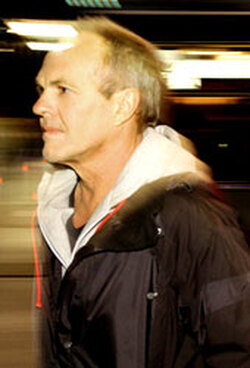 Stephen House: has had many plays commissioned and produced. He has won two Awgie Awards (Australian Writer’s Guild), an Adelaide Fringe Award, First Prize Rhonda Jancovich Poetry Award for Social Justice, The 2018 Goolwa Poetry Cup, and First Prize 2018 SA Writers / Feast Short Story Prize. He has been shortlisted for: 2019 Lane Cove Literary Award, 2018 Overland’s Fair Australia Fiction Prize, Patrick White Playwright and Queensland Premier Drama Awards, the Tom Collins, Robyn Mathison, Eyre writers, Mindshare Poetry Prizes (and more), The Di Cranston Script Award, and a Greenroom best actor Award. He has received Australia Council Canada and Ireland literature residencies, and an Asia-link India literature residency. He has seen his work published, including by Currency Press, Australian Script Centre, Australian Poetry Journal, Third Street Writers USA, Page and Spine, The Blue Nib Ireland (and more), and many literary websites internationally. His poetry collection “real and unreal” was published by ICOE Press Australia in 2018. He continues to perform his acclaimed monologues, “Appalling Behaviour” and “Almost Face To Face” widely. 2/17/2020 0 Comments Poetry by Joe Cottonwood Richard P J Lambert CC
Chachoo: Good Work is Good Work Scar on throat, no voice, croaks like a crow looking for work, for strictly cash. Up north the season is short, labor is precious. Already got Petey with PTSD, Iggy the Inuit warrior, not real names. I say we’ll try you out. Call him Chachoo. He’ll move dirt, carry lumber and next thing he’s walking the top plate balanced like a bird setting trusses, no fear. Short, squat, strong as two men in one body. Every noon a skinny girl brings a hot salmon sandwich and they sit together, quiet. In sunshine his body sweats like a cold glass of Coca Cola. Anybody tries to talk to the girl, eye contact, Chachoo jumps in his face like a grizzly. A dark cloud, cold wind as Chachoo is tossing scraps in the dumpster, final cleanup when the deputy’s car pulls up front. Warrant from Louisiana, name, photo. Never heard of him, we say because good work is good work. A single leather glove, all they find. A year later, warm city — hey — it’s the daughter near the bus station, give her some cash, tell her it’s back pay which some of it is. “I’ll see he gets it,” she says. “Did he really kill a man?” Her eyes, deep brown, so wet. “He was protecting me.” I say, “All they found was his glove.” “He don’t need it.” Then like Chachoo, she’s gone. Morning, Chancellor’s Handyman Two dogs promise with sincere snouts, soft whimpers: Set us free to run this fenced yard just a few minutes. We’ll be ever grateful. With human fingers I unlatch chains. Whoa! Like deer they leap the gate. Gone, the Dalmatian and the big goofy mutt through mud and wet weeds sticky with seeds. Call me sucker. Call me fool. I say to you, this world needs more softies. Here comes Dr. Markoman tying a bathrobe shut asking why I let his dogs out in the early morning so I jog around the private school campus among beautiful young minds embedded in goofy (but graceful) young bodies not unlike the dogs that are waiting in the back yard when I return. Warm tongues, happy tails. Now who’s the fool? Monday’s first task is to stuff ten cubic yards of spread-out rained-on garbage into five cubic yards of dumpster. Shove. It squirts. Rinse, repeat. Call me dirty. Call me smelly. I say to you, deal with your garbage. Or deal with me. Choose. Next, this old door is sticky, delaminating. Glue and clamps, grease the hinges, shave the edge while in the next room for donors an elegant breakfast of croissant, crème fraîche. Give me crunchy bread with black coffee, then let me run with dogs. I fix things. You need me. What’s next? Joe Cottonwood has worked as a carpenter, plumber, and electrician for most of his life. He lives in La Honda, California, where he built a house and raised a family under (and at the mercy of) giant redwood trees. His most recent book is 99 Jobs: Blood, Sweat, and Houses. More at: joecottonwood.com. 2/17/2020 1 Comment Did You See Him by Darcy SmithDid You See Him in every mirror did you hear him behind each door another coat your lips red orange painted courage cracked when your son left you didn’t dare ask or dig past his veins collapsed he moved on clefting the web of skin between his toes. Your new slipcovers brightened the living room which was never truly warm. He came back woodstove gone cold seizing not quite convulsing spit gurgling not throwing up not that there’s ever any noise when winter nights turn black his eyes rolling past then back to you and Dad then I got shooed back to bed shivering. 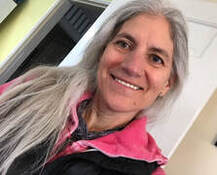 Darcy Smith works as a sign language interpreter. Recent poems have appeared and are forthcoming in New Reader Magazine, Sequestrum, Coe Review, Two Thirds North, January Review and River Heron Review. A Buddhist and a kickboxer, her current obsession is executing a six punch three kick combination with perfect form. 2/17/2020 1 Comment Poetry by John TustinTHE ANGELS BURST FROM MY CHEST At some point When I am drinking At night Sometimes If I drink enough In a short time The angels burst from my chest And a bright light Steams from my torso They shoot words from trumpets Handed to them by God I don’t remember the words I say Or the poems that come But the next morning Is all about Editing And apologizing For God’s angels And the trumpets He has bestowed Them THE FALLACY OF HUMANITY I was going to write That there is no love In the world Anymore But the fact is There never was We are just herd animals Running in our packs Dumb bumbling tribes Huddling for warmth Comfort The pretense of sympathy The fallacy of humanity Always ready to murder At the promise Of the tiniest Crumb What does it matter If the mode of seduction Is a compliment The promise of shelter The allure of potential joy The lies of love Ever since we conquered fire Harnessed it We’ve spent our lives Searching for light Then dousing it When we catch it It’s you against me It’s me against the world It’s me against you It’s you against the world Our backs against the falling fence The alliances shift With the motion of the waves The placement of the sun The dearth Or plenty of clouds Nobody really loves me Nobody really loves you It was never us against the world It was me And it was you No love Never love It will always be this way I tell you this Because I love you: There is no love Never forget that THIS IS MY DEATH this is my death stepping over toys in the living room with scabby eczema-ravaged feet, beer burps and flatulence and false crown this is my death greasy lips disconnected slightly Neil Young blasting as I contemplate pornography and impossible dreams this is my death of subservient immolation and the fear of forward movement this is my death of steak and potatoes and Sam Adams and Dr. Pepper and Cadbury Fruit and Nut Bar this is my death of writing without reading acting without thinking needing without comprehending this is my death of words without action of thought without deed beautiful blue eyes surrounded by excrement and fast-folding lies medicated for comfort dedicated only to the promise that tomorrow will come  John Tustin began writing poetry again a little over a decade ago after a hiatus just as long. fritzware.com/johntustinpoetry contains links to his published poetry online. |
AuthorWrite something about yourself. No need to be fancy, just an overview. Archives
April 2024
Categories |
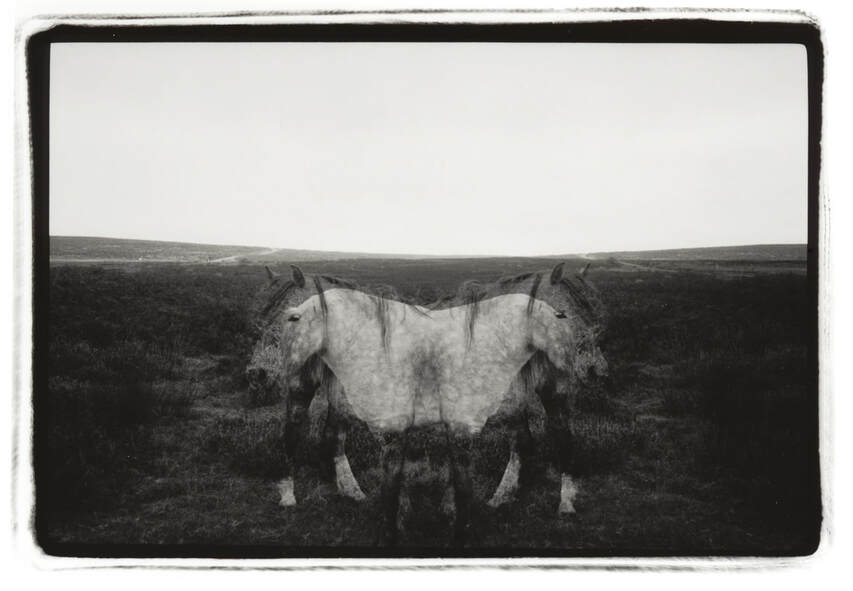
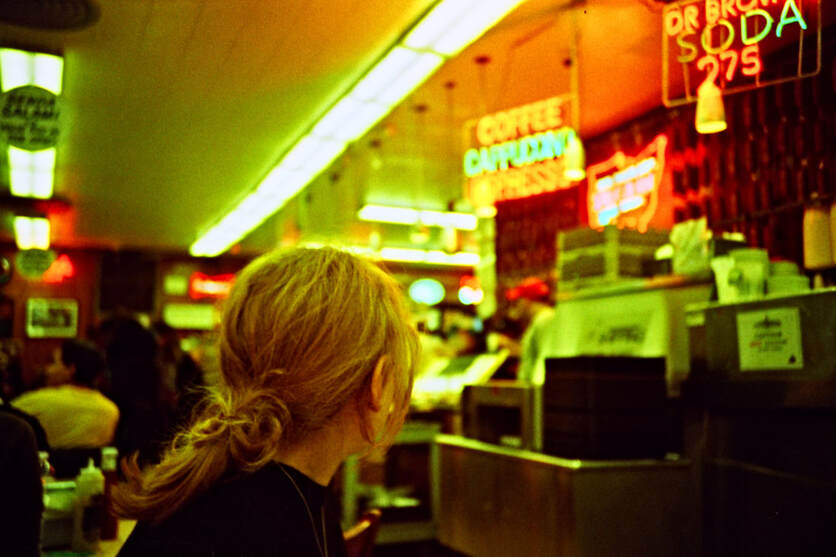

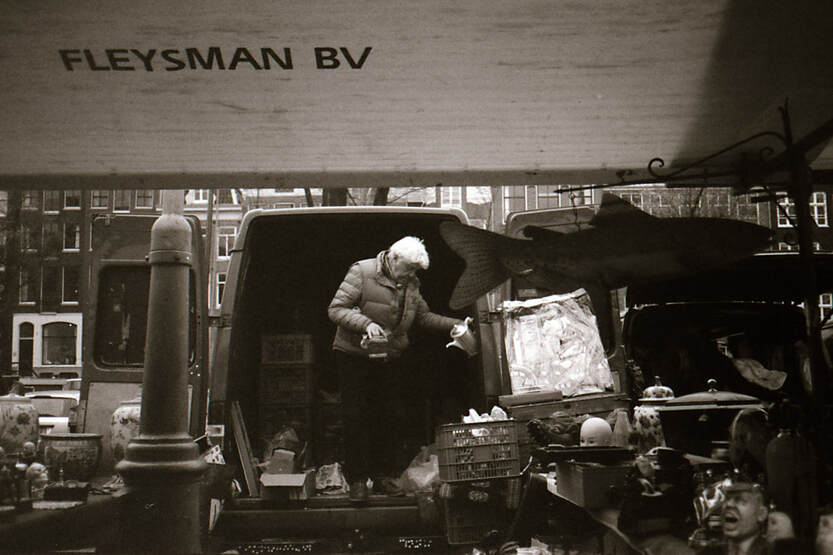
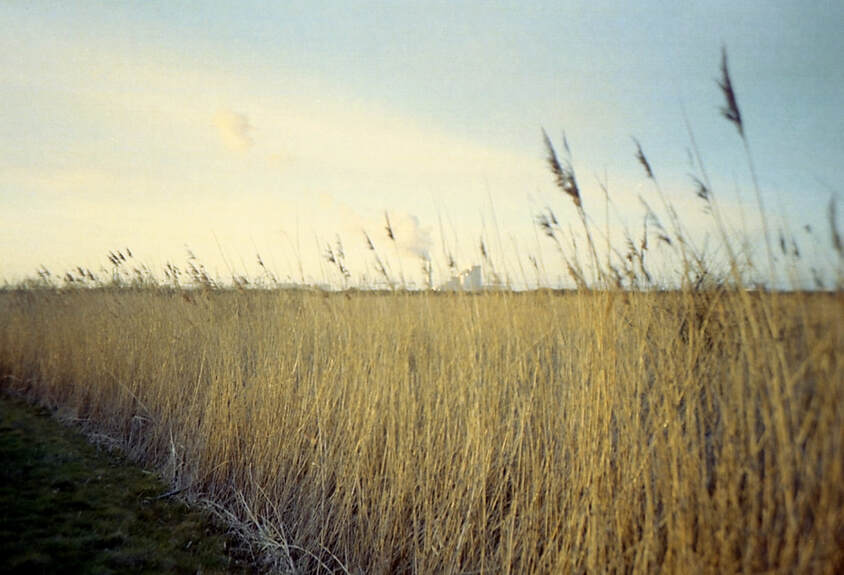
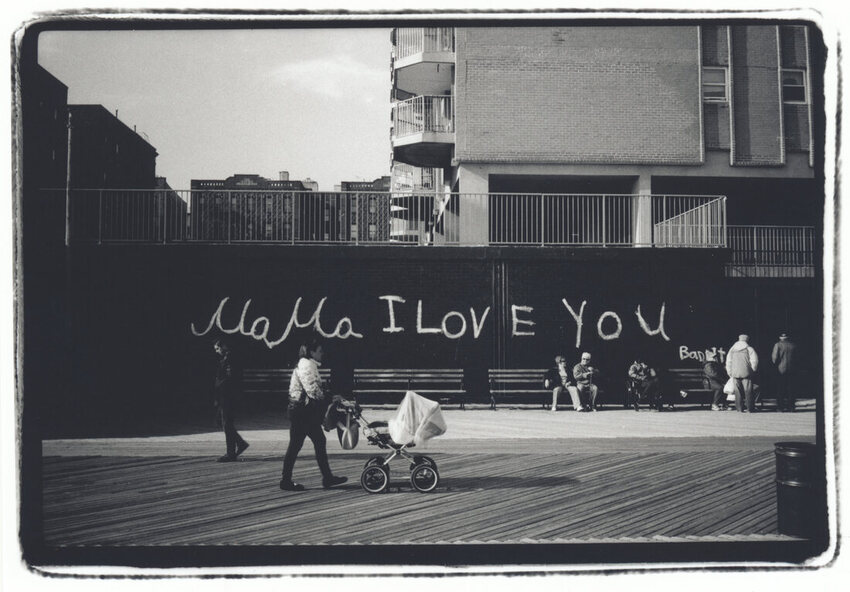
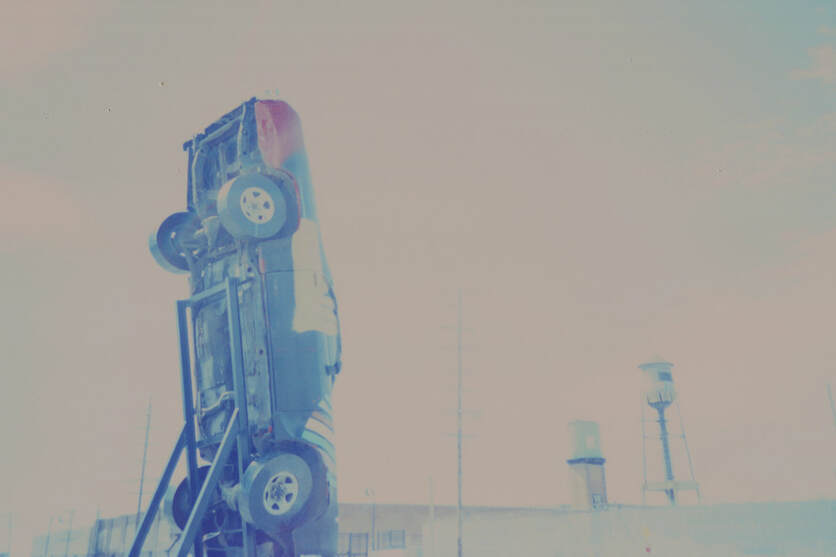
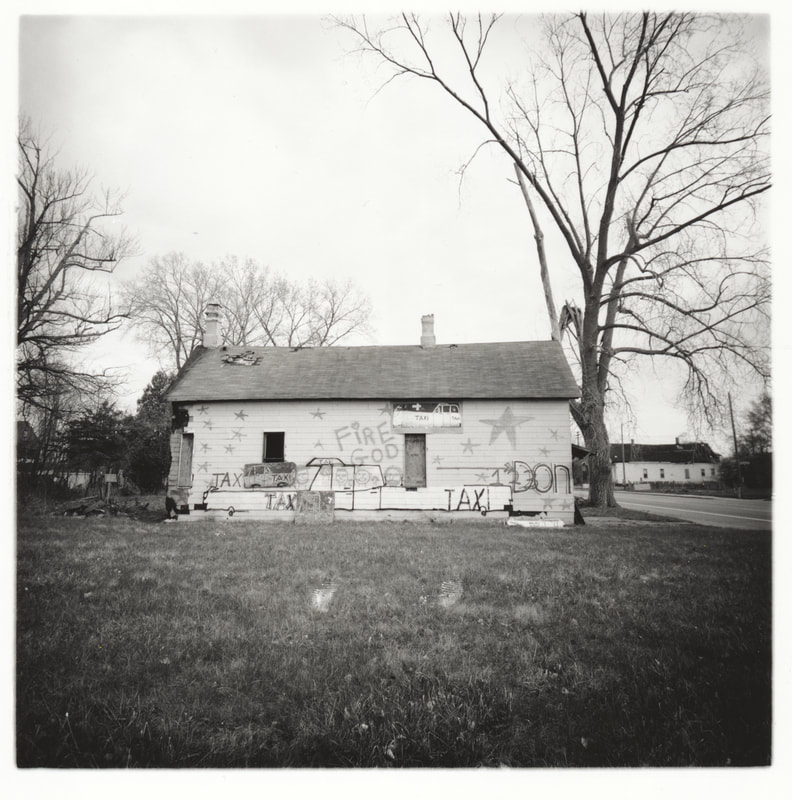
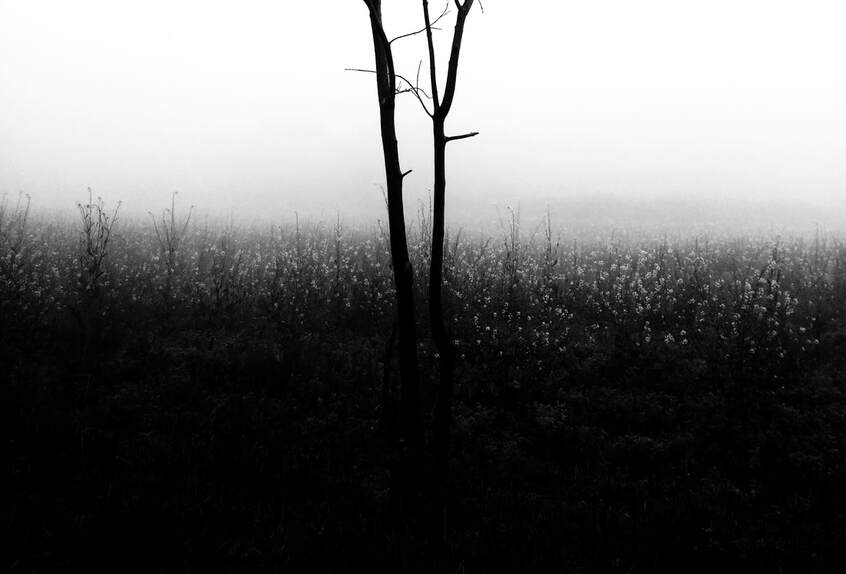
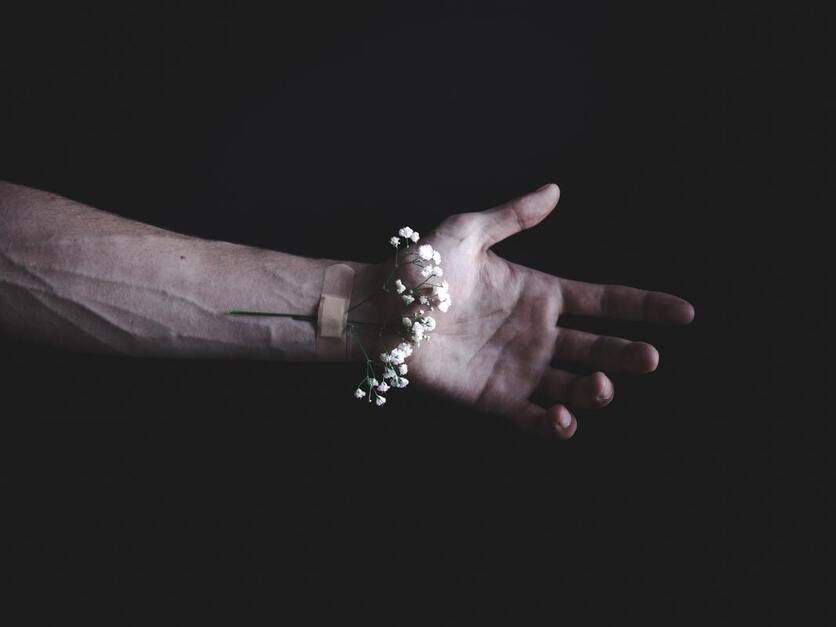
 RSS Feed
RSS Feed
